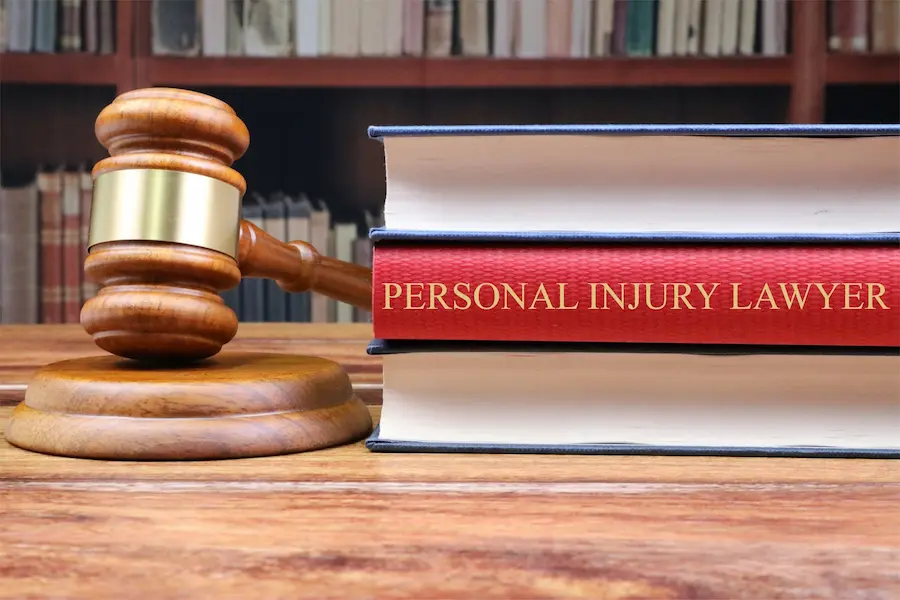Personal injury cases encompass a wide range of legal disputes that arise when an individual suffers harm due to someone else’s negligence or intentional actions. These cases can lead to compensation for the injured party. In this comprehensive guide, we’ll delve into various types of personal injury cases, providing insights, statistics, and answers to frequently asked questions.
Types of Personal Injury Cases
Personal injury cases can be categorized into several common types, each with its unique characteristics and legal considerations:
- Car Accidents:
– The most common type of personal injury case.
– Involves accidents between cars, motorcycles, or other vehicles.
– Liability determined based on negligence, such as reckless driving or failure to obey traffic rules.
- Slip and Fall Accidents:
– Occur when someone slips, trips, or falls due to hazardous conditions on someone else’s property.
– Property owners may be held responsible for injuries caused by their negligence.
- Medical Malpractice:
– Involves injuries or harm caused by healthcare professionals’ negligence or substandard care.
– Complex cases requiring expert testimony and careful legal examination.
- Product Liability:
– Occurs when a defective product causes injury or harm to a consumer.
– Manufacturers, distributors, and retailers may be held liable for defective products.
- Dog Bites:
– Cases where a person is bitten or attacked by a dog.
– Liability often falls on the dog’s owner or caretaker.
- Workplace Accidents:
– Injuries that occur on the job due to unsafe conditions or employer negligence.
– May involve workers’ compensation claims or personal injury lawsuits against third parties.
- Wrongful Death:
– Lawsuits filed on behalf of a deceased person’s beneficiaries.
– Typically result from negligence or intentional harm leading to a person’s death.
- Assault and Battery:
– Involves intentional physical harm or threats that lead to injury.
– Criminal charges may accompany civil lawsuits.
- Defamation:
– Cases where false statements harm a person’s reputation.
– Libel (written) and slander (spoken) defamation are actionable in court.
- Premises Liability:
– Injuries sustained on someone else’s property due to negligence.
– Covers various situations, including inadequate security, building code violations, or poorly maintained premises.
Frequently Asked Questions
Q1: How long do I have to file a personal injury claim?
– A: The statute of limitations varies by state and the type of case. It typically ranges from one to three years after the injury or incident.
Q2: What compensation can I receive in a personal injury case?
– A: Compensation may include medical expenses, lost wages, pain and suffering, property damage, and in some cases, punitive damages.
Q3: How is fault determined in personal injury cases?
– A: Fault is typically determined by establishing negligence, which involves proving that the responsible party owed a duty of care, breached that duty, and caused the injury.
Q4: Can I handle a personal injury case without an attorney?
– A: You can, but it’s not recommended. Personal injury cases can be complex, and an experienced Fort Lauderdale personal injury lawyer can help maximize your compensation and navigate legal complexities.
Statistics and Trends
- Car Accidents:
– According to the National Highway Traffic Safety Administration (NHTSA), there were over 36,000 fatal motor vehicle crashes in the U.S. in 2020.
– Distracted driving and impaired driving continue to be major contributors to accidents.
- Medical Malpractice:
– Medical malpractice claims have been declining in recent years.
– In 2020, the median medical malpractice jury award was $1,175,000.
- Product Liability:
– The Consumer Product Safety Commission (CPSC) recalls thousands of products each year due to safety concerns.
– Defective medical devices and pharmaceuticals have led to significant product liability cases.
- Workplace Accidents:
– In 2020, the Bureau of Labor Statistics (BLS) reported over 5,300 workplace fatalities.
– Workplace safety regulations continue to evolve, impacting personal injury cases.
Conclusion
Understanding the various types of personal injury cases is crucial for individuals seeking legal redress for injuries and harm caused by the negligence or intentional actions of others. Whether you’ve been injured in a car accident, experienced medical malpractice, or suffered any other type of personal injury, it’s essential to consult with an experienced attorney to protect your rights and pursue fair compensation. Personal injury cases are diverse, and each case requires careful examination to determine liability and secure the best possible outcome for the injured party. Stay informed, seek legal advice when needed, and exercise your legal rights to ensure justice and fair compensation in personal injury cases.

